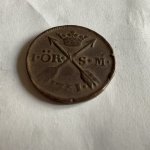gtfd47
Jr. Member
A reminder to all who hunt in the woods. Be aware of Ticks, Tis the season, atleast in the Northeast. Was out this weekend, had 20-25 of them on me. Nasty!! Both deer and wood. Lymes disease is bad and prevalent. Where light colored pants and deet repellant. Also came across a sizeable water mocasin on the trail. What are some other nasties, youve come across? Just curious.
Goose
Goose










